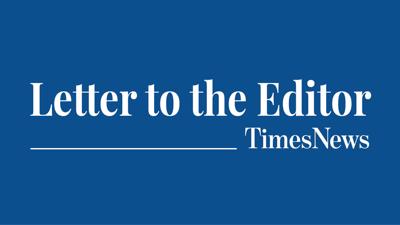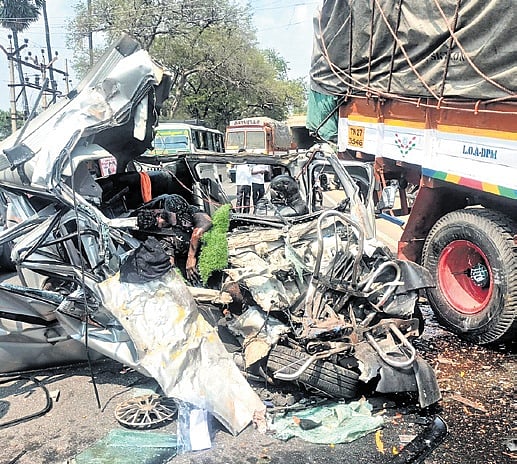Students and professors at Northwestern University and the University of Illinois Chicago held events Thursday as part of the National Day of Action for Higher Ed, a nationwide effort to protest the Trump administration’s cuts to education funding and changes to policy. President Donald Trump promised to pursue federal cuts to education and eliminate diversity, equity and inclusion programs on the campaign trail, to stamp out curricula he deemed inappropriate. The Trump administration confirmed last week that it froze $790 million to Northwestern and the school received stop-work orders on roughly 100 federal grants.
. However, the university’s president, Michael Schill, said in an email to faculty Thursday that Northwestern would continue to “fund research that is subject to stop-work orders.” Schill did not specify how.

Some doctoral students and professors said Thursday the university hasn’t done enough. As one of five planned events on Northwestern’s campus, members of the university’s graduate school union held a news conference in Deering Meadow, the site of an encampment that sprang up last spring. They held signs urging the university to “preserve research funding” and help create a “diverse, equitable and inclusive workplace.
” Postdoctoral researchers or research coordinators could soon find themselves out of a job, said Peter Cummings, a doctoral student studying behavioral medicine who has spent two years working on a project examining the care of transgender individuals at the university. Cummings is unsure if federal funding for his research will continue to be available. “The censorship that unfolds as a result of funding freezes is going to create a chilling effect where people aren’t going to be able to continue to do cutting-edge research in areas that need to be discussed,” Cummings said.
“We’re fending for ourselves.” Some Northwestern professors pointed to Harvard’s public defiance Monday of the Trump administration’s efforts to limit activism and free speech there, but recognized that it has more leeway as the university with the largest endowment in the nation. “The future of (Northwestern) is more than just the money,” said Jorge Coronado, a professor of Latin American and Andean literatures who attended Thursday’s news conference in Deering Meadow.
“It’s how you allow teaching and research to flourish, how you treat people who are in the university, how you listen to them and take into account.” Northwestern is one of seven universities targeted in recent weeks for allegations of antisemitism tied to pro-Palestinian protests that spread across campuses in spring 2024. The other Ivy League institutions that have also been targeted have taken different approaches to respond to the funding freezes.
Students, faculty, staff, and supporters attend a rally to protest the Trump administration’s recent revocations of student visas for international students at several Chicago area universities on April 17, 2025, in Evanston. (Armando L. Sanchez/Chicago Tribune) In early February, Northwestern was placed under investigation by the U.
S. Department of Education for what the federal agency called “widespread antisemitic harassment.” The university released a progress report in early March.
It outlines mandatory antisemitism training, changes that the university has made to its student code of conduct and rules for enforcing violations. But conflict is still simmering on campus. Early Monday, a group of students vandalized several buildings at Northwestern, according to a statement on the university’s website.
The graffiti was immediately removed. “Antisemitic acts cannot and will not be tolerated at Northwestern, nor will vandalism or other violations of our policies on displays, demonstrations, or conduct,” said Schill in the online statement Monday. Northwestern is working on identifying the people responsible, Schill’s statement said.
He wrote that if they are students, they would “be immediately suspended and face full disciplinary proceedings under University policies, as well as criminal charges under the law.” The proximity of the graffiti incident to Trump’s announced cuts was “probably not a coincidence,” according to Sari Eisen, the university’s student president of the Jewish organization Hillel. “This (also) happened during Passover, which is a time when we’re supposed to come together and celebrate as a community,” she added.
As a Jewish student who witnessed the protests that spread across campus last spring, Eisen said she believes the university has made progress in combating antisemitism. “Considering that it’s been such a quiet year, it was definitely kind of a shock to the student body.” Jane Miglo, graduate student in the UIC pharmacy department, at the Day of Action for Higher Ed on the UIC University Hall lawn on April 16, 2025.
(E. Jason Wambsgans/Chicago Tribune) At the University of Illinois Chicago Thursday, organizers held a rally on the lawn outside an administrative building, calling on the university to “fight relentlessly against the Trump agenda.” Jane Miglo, a sixth-year pharmaceutical doctoral student, aid she’s witnessed firsthand the attacks on science and research at the hands of the current administration.
“It’s a pretty scary time,” Miglo said. “It’s important to fund science. NIH funding fuels a lot of the economy, and I don’t think people understand that.
” Cuts have also delayed research assistants’ and graduate students’ job offers, said Kasi Woods, a political sociology doctoral student at UIC. Typically released 45 days before their start date, Woods said Friday will mark 30 days before summer classes begin, and students have yet to hear back about their appointments. “Some people still don’t have their job offers even though they’ve been told by the university that they will be teaching a class.
That particularly affects international workers,” Woods said. “They are so afraid of having their visa status having some kind of lapse.” A high-ranking official at U.
of I., who did not have permission to speak on the record, told the Tribune last week that 19 students had their visas rescinded. UIC fourth-year English major Alicia Ribeiro said students have not been satisfied with the university’s response and want to ensure students who organized in support of Palestinians aren’t targeted like Mahmoud Khalil, who helped lead last spring’s protests at Columbia University and now faces possible deportation despite facing no criminal charges.
UIC undergrad student Alicia Ribeiro, representing Sanctuary for All at UIC, poses for a portrait during the Day of Action for Higher Ed on the UIC University Hall lawn on April 16, 2025. (E. Jason Wambsgans/Chicago Tribune) UIC Latino studies professor Xóchitl Bada on the Day of Action for Higher Ed at the UIC University Hall lawn on April 16, 2025.
(E. Jason Wambsgans/Chicago Tribune) “It’s really scary,” Ribiero said. “Not everybody has the same privilege as I do to be able to speak without certain retaliation.
I’m lucky to have citizenship, so I feel more comfortable sharing and speaking out than maybe noncitizen students, so I try to use that.” UIC professor Xóchitl Bada said there is a “campaign of intimidation to avoid dissent” on university campuses. As the Trump administration threatens cuts to funding research, Bada said she finds it “belittling” that conservatives believe students are unable to form their own judgments.
.
Top

Federal cuts, threats fuel protests at Northwestern and UIC

Students and faculty protest funding freezes, criticize university responses to Trump administration’s crackdowns on campus speech as part of nationwide demonstrations Thursday.










